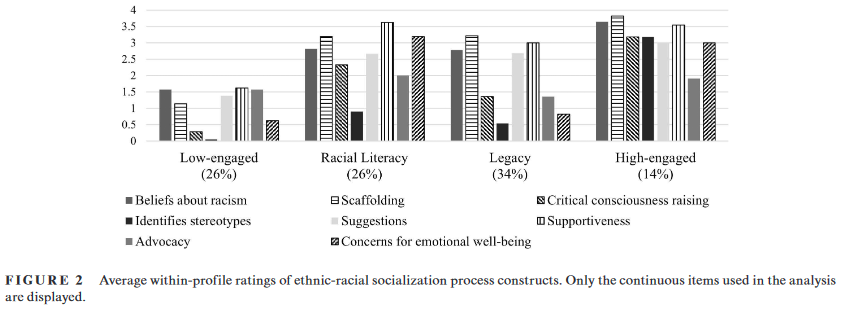Profiles of caregiver racial-ethnic socialization found to promote academic engagement in Black and Latinx youth
Faculty Associate Mia Smith-Bynum and colleagues recently published a journal article in Child Development that investigates how caregivers' responses to racial/ethnic discrimination in the school setting differ by caregiver / youth demographics and youth academic achievement.
Caregivers' racial-ethnic socialization (RES) of children is a dynamic process informed by youth's development. Late childhood is a period marked by accelerated racial-ethnic identity development and shifts in youth's autonomy and school environments. Smith-Bynum points to this developmental stage as critical for investigating caregivers' responsiveness to racial-ethnic discrimination because it may buffer against the negative internalization of these experiences. Prior work has also identified caregiver-provided RES as a protective factor for the negative effects of racialized school experiences on youth academic engagement.
Thus, this study aimed to answer three questions:
- Do caregivers differ in their responses to a specific, school-based racially and ethnically discriminatory situation?
- Should differing profiles arise, are they distinguishable by the demographic characteristics of the caregivers in these profiles (i.e., racial/ethnic group, language, nativity, income, education) or that of their children (i.e., sex, age)?
- How are profiles of caregiver ethnic-racial socialization related to youth academic engagement?
Using an observational protocol established by Smith-Bynum, Black and Latinx caregivers of 10-11 year old youth observed vignettes of racially and ethnically discriminatory experiences directed toward youth and discussed what their response would be. Coders rated their verbal and nonverbal responses according to caregivers' beliefs about the existence of racial and ethnic bias and their intended support of the youth.

Four profiles were identified (Figure 2). The researchers found several significant differences in the demographic makeup of each profile across caregivers' nativity, racial identity, ethnic identity, dominant language, and the sex of their child. Additionally, greater youth academic engagement was associated with caregiver membership in the Legacy profile, compared to the Low-engaged and High-engaged profiles. The researchers state, "These findings suggest that socialization approaches that prioritize a preparedness for racial and ethnic barriers over the awareness of them may benefit engagement more in the short term than approaches that cover all facets of ethnic-racial socialization at once."
